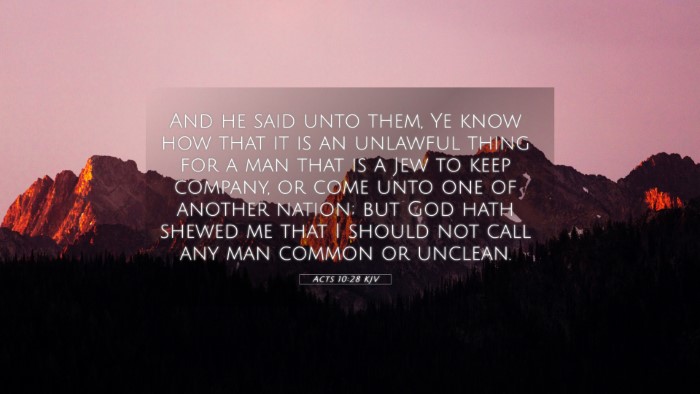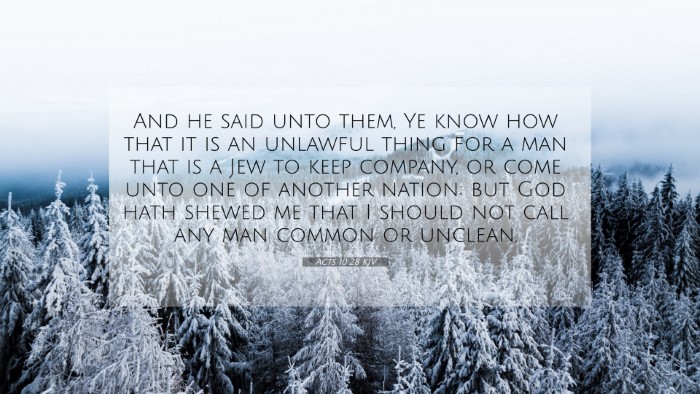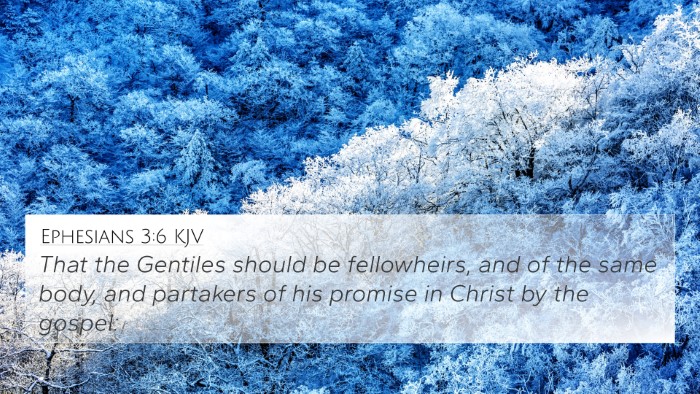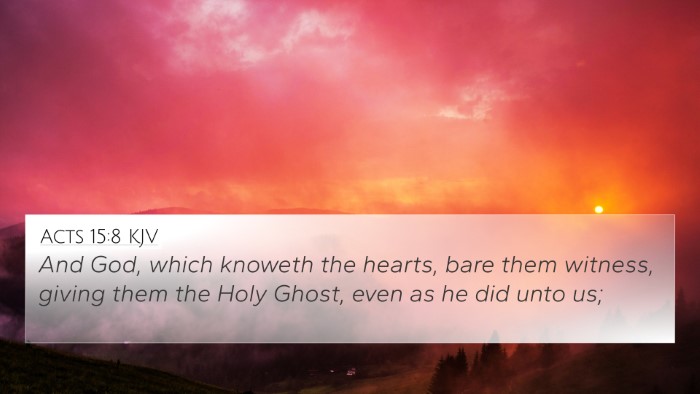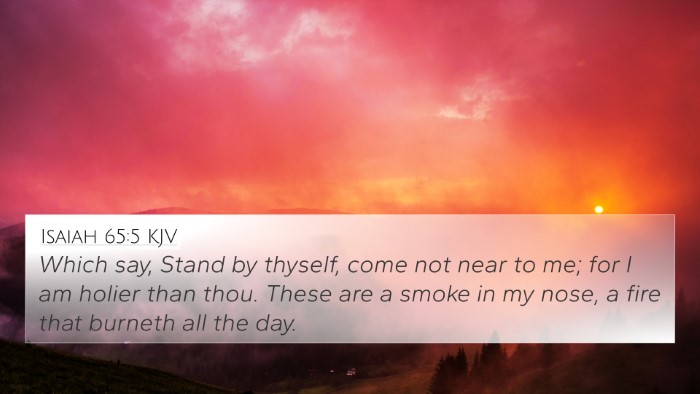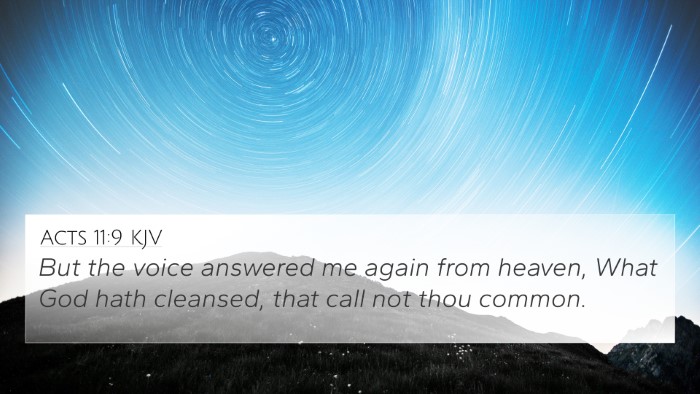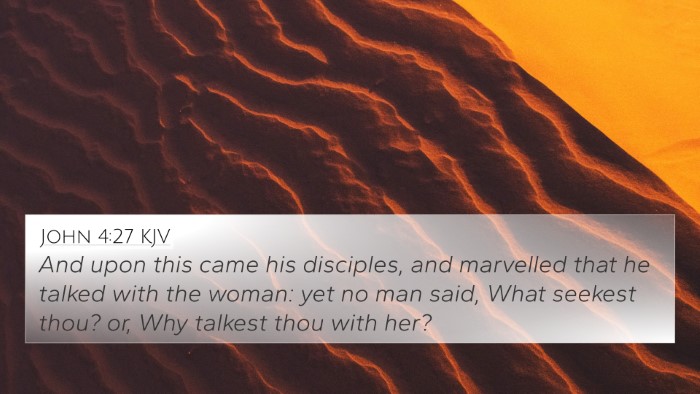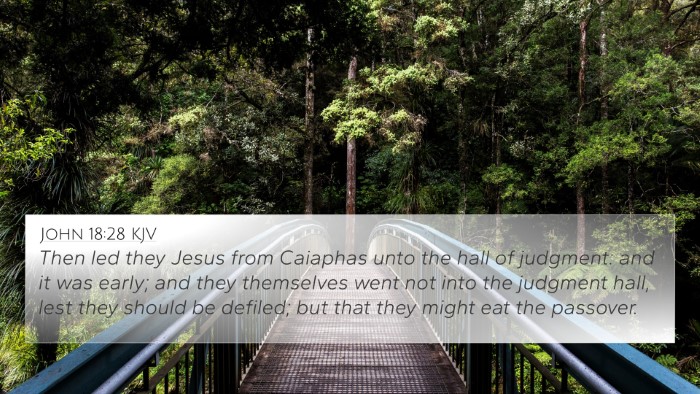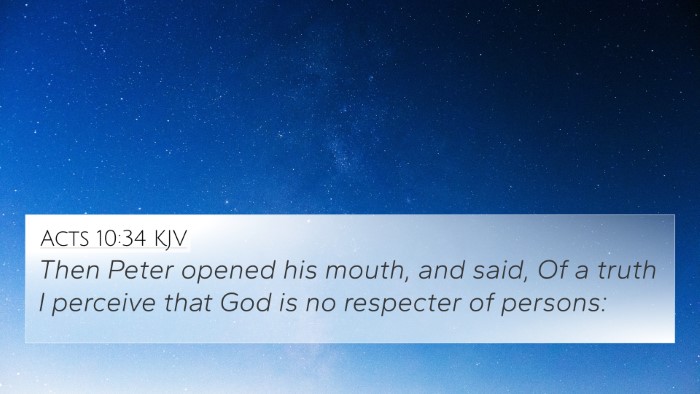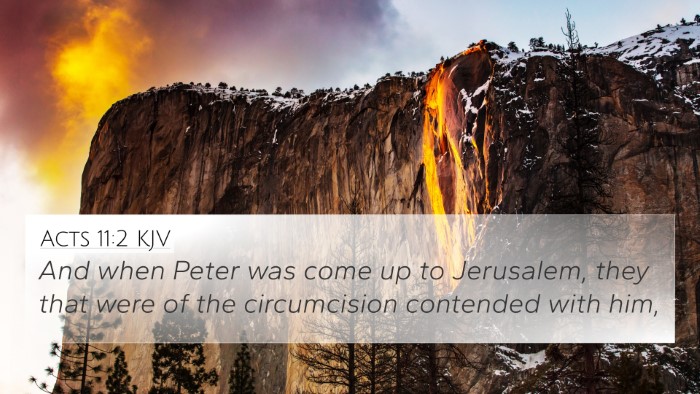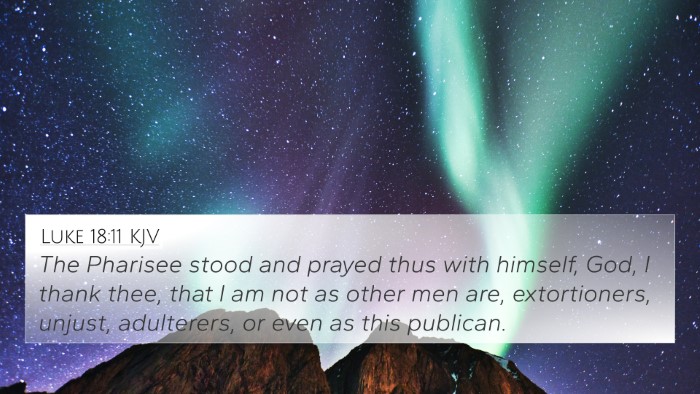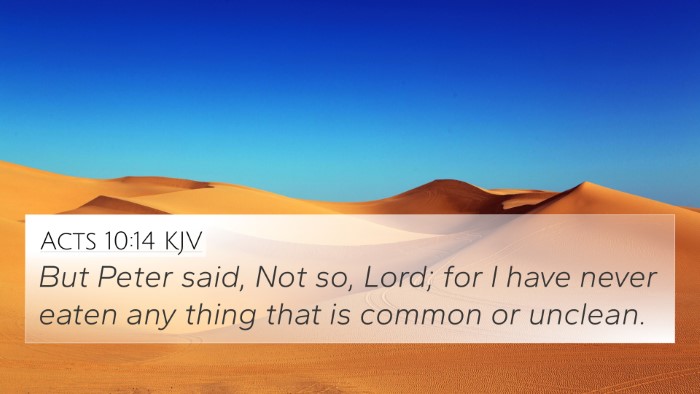Meaning and Interpretation of Acts 10:28
Verse: Acts 10:28 - "And he said to them, 'You yourselves know how unlawful it is for a Jew to associate with or to visit anyone of another nation, but God has shown me that I should not call any person common or unclean.'"
Overview
Acts 10:28 marks a pivotal moment in the early Christian church, emphasizing the breaking down of barriers between Jews and Gentiles. This passage highlights the transformative message of the Gospel which transcends cultural and national boundaries.
Contextual Background
This verse is situated in the broader narrative of Peter's vision where he is instructed to eat animals considered unclean by Jewish law. This vision symbolizes God's intention to cleanse not just food, but also the hearts of people from different backgrounds.
Public Domain Commentary Insights
-
Matthew Henry:
Henry points out that God’s revelation to Peter indicates a significant shift in how the Gospel is to be preached—to all peoples, not only the Jews. This was a radical transformation in the understanding of God’s covenant.
-
Albert Barnes:
Barnes elaborates on Peter's reluctance to mingle with Gentiles and highlights the divine instruction that challenges prevailing cultural norms. This serves as an exploration of divine grace extending to all nations.
-
Adam Clarke:
Clarke emphasizes Peter's astonishment at the divine directive, stressing that God's acceptance now includes Gentiles, showcasing the universal call of the Gospel. He notes the crucial change in the early church’s mission.
Thematic Connections
Acts 10:28 relates to several other scriptural passages, reinforcing the themes of inclusion and God’s impartiality:
- Galatians 3:28: “There is neither Jew nor Greek, slave nor free, male nor female, for you are all one in Christ Jesus.” This verse underscores the equality among believers.
- Romans 10:12: “For there is no distinction between Jew and Greek; for the same Lord is Lord of all, bestowing his riches on all who call on him.”
- John 3:16: “For God so loved the world, that he gave his only Son, that whoever believes in him should not perish but have eternal life.” This emphasizes God’s love for all humanity.
- Ephesians 2:14-16: Discusses Christ as our peace, making Jews and Gentiles one and breaking down the dividing wall of hostility.
- Mark 7:19: Highlights that Jesus declared all foods clean, paralleling Peter’s revelation.
- Isaiah 49:6: “It is too light a thing that you should be my servant to raise up the tribes of Jacob and to bring back the preserved of Israel; I will make you as a light for the nations, that my salvation may reach to the end of the earth.”
- Acts 15:9: “And he made no distinction between us and them, having cleansed their hearts by faith.”
Cross-Referencing Biblical Texts
Understanding Acts 10:28 begins with cross-referencing it with other pertinent scriptures. By doing so, one can trace the development of the theme of inclusivity in God’s plan through the Bible.
Cross-Reference Techniques
Utilizing tools for Bible cross-referencing, such as concordances and cross-reference guides, can help in identifying connections between these verses. Here are some effective methods:
- Bible Concordance: Aids in locating similar themes by searching keywords.
- Cross-Reference Bible Study: Engaging with Bible verses that relate to Acts 10:28 can provide deeper understanding.
- Identifying Inter-Biblical Dialogue: Look for discussions among both Old and New Testament scriptures.
- Cross-Referenced Themes: Explore how themes of God’s grace and inclusion are repeated throughout scripture.
Conclusion
Acts 10:28 is a crucial scripture that challenges believers to look beyond cultural divides and recognize the universal scope of God’s love. The insights from public domain commentaries deepen our understanding of this transformative moment in church history. By linking Bible scriptures and employing cross-referencing techniques, we can better grasp the profound implications of this verse in the broader context of biblical theology.
Further Study
For a more comprehensive understanding, consider:
- Studying the book of Acts as a whole to see the early church’s response to this revelation.
- Comparative studies of Pauline epistles to see similar themes of grace and inclusion.
- Discussions on how this revelation influences modern-day practices in church and community.

